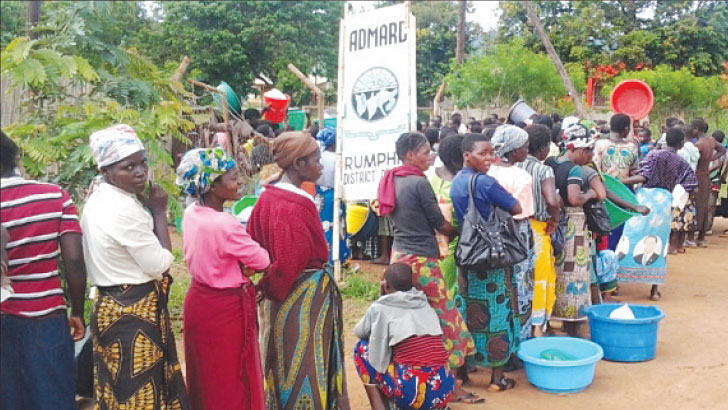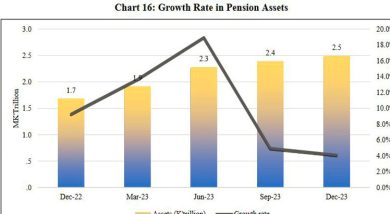Study cautions ADMARC funding
Continued public funding of financially-struggling Agricultural Development and Marketing Corporation (Admarc) is made at the expense of increased private sector engagement in maize marketing, an International Food Policy Research Institute (Ifpri) study has stated.
The Ifpri study observes that funding and policy decisions through which the government supports Admarc pose significant risks for private firms—Malawian and regional— that could engage in maize trading in the country.
The institute in the study titled Disentangling Subsistence Agriculture in Malawi observes that the ineffective efforts of Admarc to defend the government-set maize price band add uncertainty to the market, affecting all stakeholders in the maize value chain as losses that Admarc has repeatedly incurred are the responsibility of the government to cover.
For example, the study says a bailout of Admarc by government in early 2018 involved an unbudgeted expenditure of K45 billion, an equivalent of just under one percent of the country’s gross domestic product.

Reads the study in part: “These [private] firms potentially could be efficient competitors to Admarc, managing at lower risk and at lower public cost many of the functions Admarc ostensibly has been set up to undertake.
“So long as the government’s discretionary support to Admarc distorts agriculture markets in Malawi and makes them more uncertain in terms of the commercial returns they might offer, many regional agricultural trading firms will choose to operate their maize businesses elsewhere than in Malawi’s markets, and domestic firms will be constrained in the scope of their operations.”
Ifpri says while it will take time before the parastatal’s role is substantially reduced given its scale and centrality to government actions to promote food security, reforms at Admarc are needed to achieve efficiency.
Reads the study: “At the same time, however, serious efforts must be made to strengthen and expand the role and capabilities of private grain traders and other firms so that Admarc becomes an unneeded feature in Malawi’s food system.”
Between 2015 and 2019, the Malawi Government cumulatively gave Admarc K24 billion for maize procurement and K53 billion as bailout to offset bank loans while the produce trader obtained about K30 billion in loans.
Admarc’s loans included K27 billion owed to commercial banks and K2.9 billion unprocedurally obtained in 2016 from the fuel Price Stabilisation Fund managed by Malawi Energy Regulatory Authority (Mera).
Between 2015 and 2019, Admarc failed to account for K9.3 billion in personal emoluments and is said to have wasted about K10 billion from maize sales after reducing the price from K270 per kilogramme (kg) to K150 per kg.
Last year, the Ministry of Finance authorised Admarc to borrow K22 billion from commercial banks to buy farm produce.
In March this year, Admarc board chairperson Alexander Kusamba-Dzonzi also announced that the parastatal had secured K423 billion loan to boost its operations, which included setting up a textile, surgical wool and cooking oil processing plants.
In an interview on Tuesday, agriculture policy development expert Tamani Nkhono-Mvula observed that while the Admarc Amendment Act of 1994 bars the parastatal from getting financial support from government, it only comes in to support the parastatals to meet its social responsibilities.
He said: “The support that government gives to Admarc is a good thing as it helps to stablise prices on the markets because in most cases, minimum prices are not enforced and also the private sector is failing to fill the gap that Admarc left after reforms.
“Now, it is the vendors who are filling the gap and exploiting farmers because private traders have no capacity.”
A Poverty and Social Impact Analysis on Admarc conducted by former Secretary to the Treasury Milton Kutengule and two others—Antonio Nucifora and Hassan Zaman—indicated that the parastatal’s social functions ceased in early 2000s.
The cessation followed establishment of National Food Reserve Agency (NFRA) and the Department of Disaster and Management Affairs.
In line with the changes, Admarc’s storage capacity, which used to reach 468 000 metric tonnes (MT) was reduced to 200 000MT with the transfer of storage facilities to NFRA.
Before the reforms, Admarc operated up to 1 300 seasonal markets, 217 unit markets, 80 area offices, 12 district headquarters, three regional offices and 18 storage depots.
Half of these were closed and Admarc now operates 700 seasonal markets nationwide.
Speaking in Parliament recently, Minister of Finance Felix Mlusu said it is the wish of government that Admarc is well resourced to enable it to adequately buy farm produce from smallholder farmers in good time.





